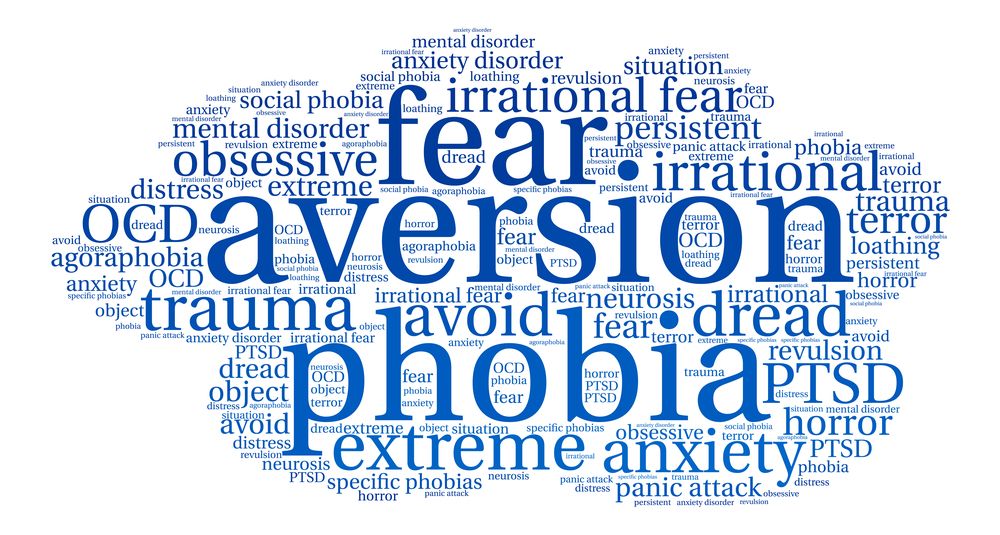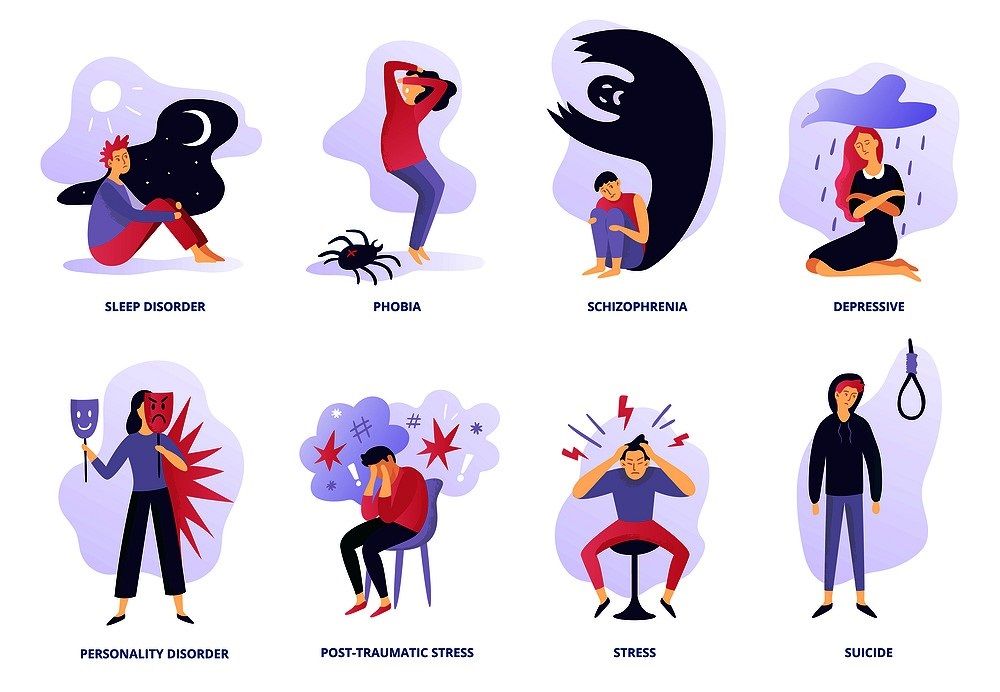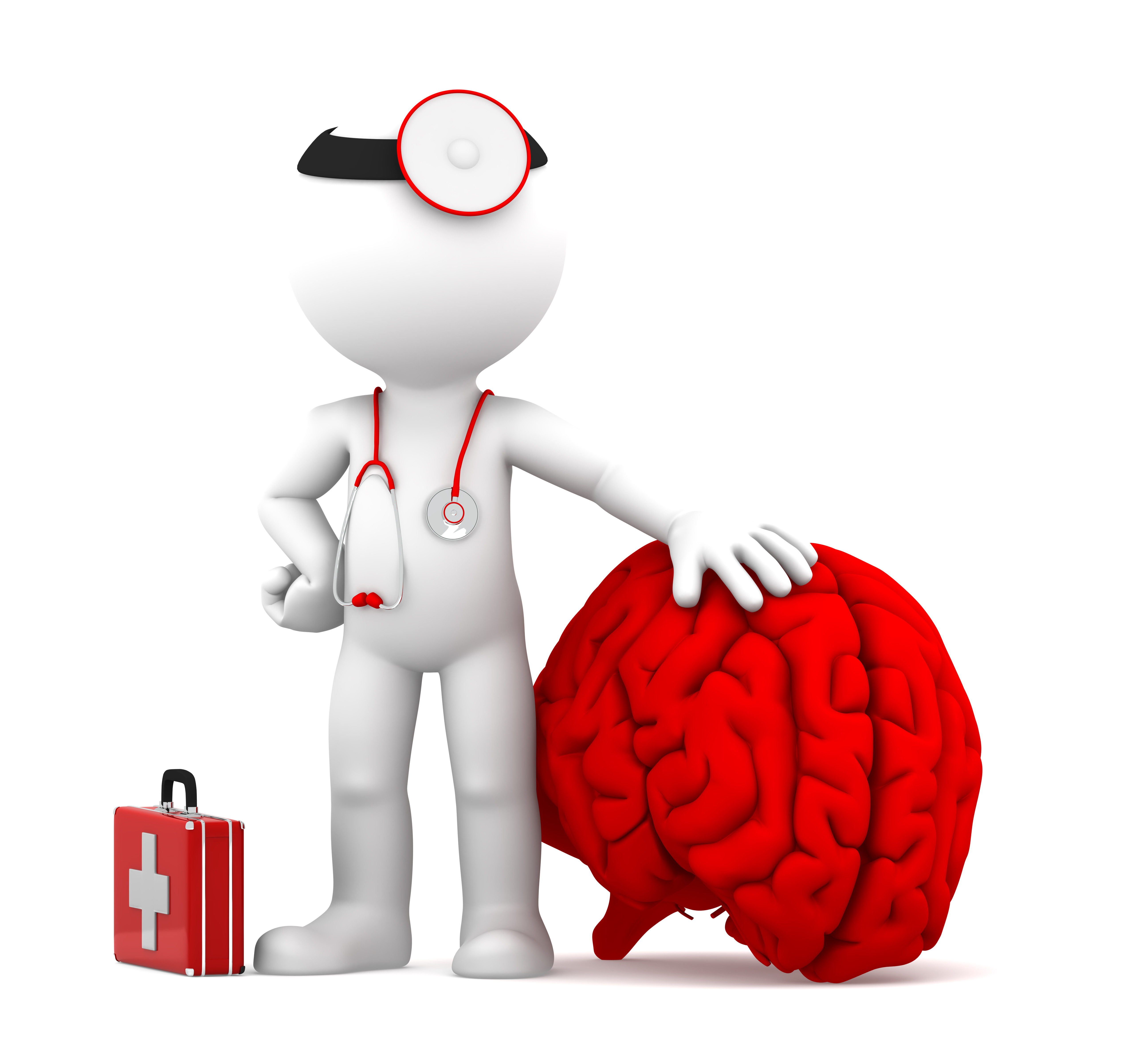What is anxiety?
Lesson 1
Anxiety is a common mental health condition characterized by feelings of worry, fear, and apprehension. It is a natural response to stress or certain situations and can vary in intensity. Anxiety can be caused by a combination of factors, including genetics, brain chemistry, and life experiences.
It manifests through physical symptoms such as increased heart rate, sweating, trembling, and mental symptoms such as excessive worrying, difficulty concentrating, and restlessness.
Anxiety disorders can significantly impact a person's daily life and may require treatment such as therapy or medication to manage.
When left untreated, anxiety can seriously impact a person’s mental and physical health.
Anxiety symptoms include difficulty concentrating, sleeping, restlessness, irritability, and muscle tension. It can also lead to depersonalisation or feeling disconnected from your body and environment. In severe cases, anxiety can cause panic attacks with physical symptoms such as chest pain, sweating, and a pounding heart.
In recent years, the science of anxiety has continued to grow with the development of new treatments, such as cognitive-behavioural therapy (CBT) and mindfulness-based therapies. Today, anxiety is a common mental health condition that affects millions of people worldwide. While there are many effective treatments for anxiety, it remains one of the most under diagnosed and poorly treated disorders in the world. It is important to talk to a doctor or therapist if you think you may be struggling with an anxiety disorder so that you can get access to treatment and support.
History of anxiety

Anxiety has been reported throughout history. Ancient Greek and Roman physicians described anxiety symptoms in their medical texts, though the term “anxiety” wasn’t used until the late 19th century.
In the 20th century, anxiety disorders such as post-traumatic stress disorder (PTSD) and obsessive-compulsive disorder (OCD) were recognised and treated with a mixture of psychotherapy and medication.
Researchers are finding that both genetic and environmental factors contribute to the risk of developing an anxiety disorder.
How does anxiety work?

Recall how stress is a natural response to a threat. Well, anxiety is the same thing, except there is no threat.
“Anxiety in some ways is a response to a false alarm” for example, when you show up at work and somebody gives you a suspicious expression.
You start to have all the physiology of a stress response because you’re telling yourself that your boss is upset with you or your career might be at risk.
The blood is flowing, the adrenaline is pumping, and your body is in a state of fight or flight — but there is no predator in the bushes.
There is also a difference between feeling anxious (which can be a usual part of everyday life) and having an anxiety disorder.
An anxiety disorder is a serious medical condition that may include stress or worry that starts to dominate your life.
Treating Anxiety

Seeking Professional Help
Seeking professional help can be beneficial in managing anxiety and reducing the symptoms associated with it, but it can be challenging, but effective treatments are available. If lifestyle changes are not enough to reduce anxious feelings, it is important to seek professional help. A doctor or mental health professional can assess the situation and provide a comprehensive treatment plan. Treatment may include cognitive-behavioural therapy or medication, and may include a combination of both.
Cognitive-behavioural therapy (CBT) is a popular format of therapy that focuses on identifying and changing the thinking patterns and behaviours contributing to anxiety.
It helps people learn new coping strategies and problem-solving skills to manage their apprehension better.
Treatment for anxiety usually involves lifestyle changes, counselling, and medication. Cognitive-behavioural therapy (CBT) is the most commonly used form of therapy for anxiety and involves:
- Identifying triggers that lead to anxious thoughts or behaviours.
- Developing strategies to manage them.
- Replacing negative thought patterns with more positive ones.
Medication can also be used to reduce anxiety levels, but it should be prescribed by a doctor and monitored closely.

Developing Healthy Habits
Adopting healthy habits can be an effective way to manage anxiety. Incorporating regular exercise into one’s daily routine has been shown to reduce stress and improve mood.
Exercise releases endorphins, the body’s natural feel-good hormones, which can help reduce anxious thoughts and physical symptoms. Eating a balanced diet and getting enough sleep are also important for overall wellbeing and can help reduce anxiety. Limit your sugar and caffeine intake (stimulants)
Learning relaxation techniques such as deep breathing, meditation, and progressive muscle relaxation can also help to relieve stress and physical symptoms associated with anxiety.
Limiting Stressful Triggers
In addition to developing healthy habits, it is important to limit stress-inducing activities or situations that may trigger anxious feelings. This may include avoiding people or places that are known triggers for anxiety, avoiding excessive caffeine or alcohol consumption, and limiting news intake. Taking time to relax and do activities that bring joy can also be beneficial in reducing stress levels.
What are the six major types of anxiety disorders?

The five major types of anxiety disorders are:
- Generalised anxiety disorder (GAD)
- Panic disorder
- Agoraphobia
- Social anxiety disorder (SAD)
- Specific phobias
- Separation anxiety
Generalised anxiety disorder is characterised by persistent worry and fear that can interfere with daily life.
Panic disorder is marked by recurrent, unexpected panic attacks that may be accompanied by physical symptoms such as chest pain or difficulty breathing.
Agoraphobia is an intense fear of being in public places or situations where escape may be difficult.
Social anxiety disorder is marked by fear or distress when interacting with other people.
Specific phobias are intense fears of specific objects or situations.
Separation Anxiety refers to excessive fear or worries about separation from home or someone very close to you.
Self-help for generalised anxiety disorder (GAD)
It is possible to manage GAD without professional help, although it can be a difficult process. It is helpful to start by understanding and accepting your anxious feelings. Acknowledge that your feelings are valid and accept that it’s OK to feel this way.
It may also be helpful to develop a plan of action for when anxious thoughts or feelings arise, such as taking deep breaths or engaging in a calming activity. Additionally, using positive self-talk can be an effective way to reframe negative thoughts and give yourself credit for the progress you’re making.
Finally, remember that you are not alone and seeking professional help, if necessary, is important for your well-being.
When is anxiety becomes a mental health problem?

Anxiety can become a mental health problem when it starts to interfere with everyday life. It is important to be aware of your symptoms and seek help if they are severe and/or long-lasting. Symptoms that may indicate an anxiety disorder include persistent worry, panic attacks, difficulty sleeping or concentrating, avoidance of activities or social situations, restlessness, irritability or feelings of dread. If you are experiencing any of these symptoms, it is important to reach out for professional help. A mental health professional can provide an accurate diagnosis and individualised treatment plan to help you manage your anxiety.
Managing Anxiety with Mindfulness
Mindfulness is an effective tool for managing anxiety. It involves focusing on the present moment and allowing yourself to be aware of your thoughts and feelings without judgement. Practising mindfulness can help to reduce stress and improve concentration, as well as help to regulate emotions. Mindful activities such as yoga, tai chi, and meditation can all be helpful in managing anxiety.
Additionally, spending time in nature can be beneficial for mental health, so going for a walk or spending time outdoors can help to reduce stress and alleviate anxious feelings.
Creating a Supportive Environment
Having a supportive environment is essential for managing anxiety. This could mean seeking help from family and friends, joining a support group, or talking to a mental health professional. Creating healthy boundaries can also be beneficial in reducing stress levels and providing emotional support. Additionally, setting realistic expectations for yourself can help to manage feelings of overwhelm. Finally, incorporating positive activities into your daily routine, such as exercising, eating well and getting enough sleep, can all be beneficial for managing anxiety.
What do anxiety problems feel like?
Anxiety can manifest itself in a variety of ways that may feel different for each individual. Common symptoms include restlessness, feeling on edge, increased heart rate, difficulty concentrating, fatigue, irritability, and difficulty sleeping. Additionally, people may experience physical symptoms such as muscle tension or stomach pain. It is also important to be aware of the psychological effects of anxiety, such as negative thought patterns or feelings of dread. If you are experiencing any of these symptoms, it is important to seek professional help.
Developing Healthy Coping Strategies
Having healthy coping strategies is key when managing anxiety. Establishing a daily routine and sticking to it can help to provide structure and reduce feelings of overwhelm. Additionally, engaging in activities that bring joy or relaxation can be beneficial for reducing stress levels. This could include hobbies such as reading, listening to music, playing an instrument, or spending time outdoors.
Exploring Different Treatment Options
When it comes to managing anxiety, there are a variety of treatment options available. Cognitive behavioural therapy (CBT) can be effective in helping to identify and address unhelpful thought patterns and behaviours. Medication can also be an option for some people, although it is important to consult with a doctor before taking any medication. Additionally, lifestyle changes such as reducing caffeine intake and getting enough sleep can be beneficial for managing anxiety.
Ultimately, it is important to explore different treatment options and find the one that works best for you.
When to see a doctor If you are experiencing symptoms of anxiety that are severe and/or long-lasting, it is important to seek help from a mental health professional. A doctor can provide an accurate diagnosis and individualised treatment plan to help you manage your anxiety. Additionally, they can refer you to a mental health specialist if needed. It is also important to remember that seeking help for anxiety is not a sign of weakness but rather a sign of strength.


